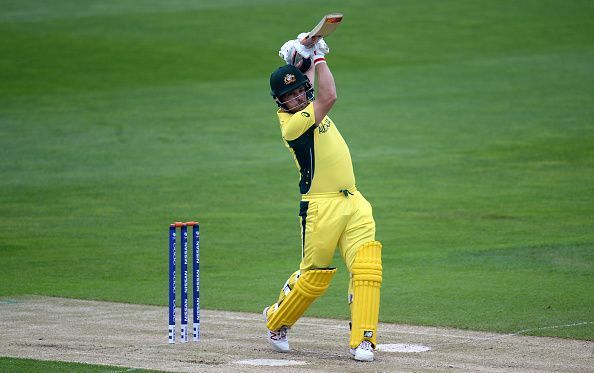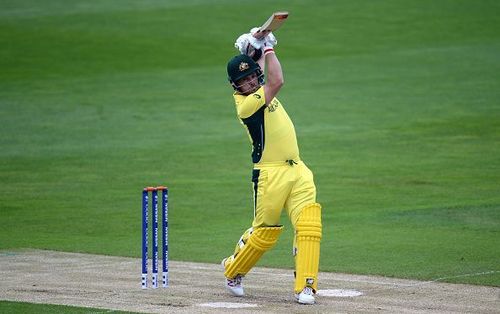
Aaron Finch confused over inconsistent application of new ICC rules

What's the story?
Amidst all the confusion surrounding the new ICC rules, Australian opener Aaron Finch admitted that he had no idea about the Decision Review System (DRS) being available in the first T20I at Ranchi until he was informed about it by Steve Smith who came on to supply drinks. Indian opener Shikhar Dhawan echoed his sentiments and added that they weren't entire aware of the playing conditions.
Speaking about when he came to know about DRS being available, Aaron Finch said: "I didn't know there was a review system until about the fifth over. Nobody did. Steve Smith when he ran out a drink mentioned it. So we had to ask the umpires. But it is quite strange to have a crossover of rules for this series.
"I mean bat sizes and things like that are coming in at the end of the series. The over situation with a shortened game ... three bowlers being allowed to bowl two overs. But DRS was in for this. It didn't have any effect on the game. I just thought it was quite odd to have mixed and matched the rules for this series."
Indian opener Shikhar Dhawan also admitted that there was an inconsistency but also added that he wasn't "exactly aware" of the playing conditions in a game that was shortened by rain.
In case you didn't know...
Australia could manage a paltry 118/8 before rain ensured that it was a six-over contest for India to chase and take a 1-0 lead. Chasing 48 for victory, the hosts got there with nine wickets and three balls to spare. While the tour began before the implementation of the new ICC rules, the first T20I saw some rules being adhered to while others weren't.
The heart of the matter
While the option of DRS for T20Is was in place for the game, the playing conditions for bowlers in a shortened game wasn't in place. According to the new rules, if a game is shortened to less than 20 overs, the maximum each bowler can bowl shall be no less than two.
If the rule was in place, the six-over contest between India and Australia should have seen three bowlers being able to bowl two overs apiece. However, it was played under the old conditions which meant that only Nathan Coulter-Nile could bowl two while the other four overs were split between Jason Behrendorff, Andrew Tye, Adam Zampa and Daniel Christian.
What's next?
After losing the first T20I, Australia will be looking to bounce back and level the series when they take on India in the second T20I at Guwahati.
Author's take
While it was clear that the new rules weren't in place for the ODI series, it was surprising to see that the new rules were partially in place for the first T20I. Consistency is an integral part of the game and lack of it doesn't show the govering organisation in good light. While India might still have won the game if the new playing conditions rule were in place and three bowlers were allowed to bowl two overs apiece, the inconsistency in implementation of rules is something that should have never happened.
The fact that some of the players weren't even aware of the availability of DRS should never happen as it is the duty of the on-field umpires to inform the players ahead of the match pf the playing conditions and one would hope that this doesn't continue going forward.